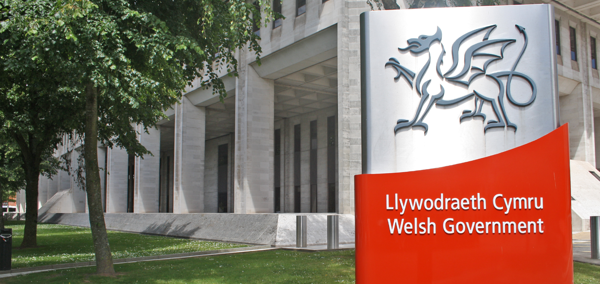It is vital children’s rights are protected in Wales, now more than ever, during the Coronavirus pandemic, according to the Senedd’s Children, Young People and Education Committee.
It has been examining the progress of the Rights of the Child and Young Persons (Wales) Measure 2011; a law passed almost a decade ago by the then National Assembly for Wales.
The impact of Covid-19 and the lockdown measures that followed quickly impacted on many children’s rights including the right to an education, their right to play, and restricted contact with friends and family for care-experienced children.
Chair of the Children, Young People and Education Committee, Lynne Neagle MS, said:
“Our recent scrutiny of the impact of Coronavirus on children and young people leads us to conclude that - now more than ever - delivering children and young people’s rights must be the priority for the Welsh Government. It must be central to its decision-making and evidence of this must be much more transparent.”

Looking back at the situation since 2011, the Committee’s report found that the Welsh Government has not always made sure that children’s rights have had a direct influence on the services children and young people receive and the decisions public bodies, like local authorities and health boards, make.
It also found that there is much more to be done to get this law working properly and that there must be a renewed focus on this by the Welsh Government.
45 feedback sessions involving more than 800 children and young people across Wales, told the Committee how important their rights are to them. Having a good education, physical and mental health, feeling safe at home and in the area in which they lived were top of the list.
Being listened to by people who make decisions which affect them and being respected by others were also crucial rights.
Some young people knew what their rights were, but the Committee found there were gaps in the knowledge of children’s rights among both children and adults.
It said this prevents the law achieving its full potential and wants the Welsh Government to have a national awareness-raising strategy to improve this situation.
“There is a lack of reference to children’s rights in key strategic documents, and insufficient evidence that the duties in the Measure are being considered and exercised across the whole of the Welsh Government."
— Lynne Neagle MS

The Welsh Government told the Committee the law had influenced a raft of policies and decisions, including how child poverty is tackled, the change in the law on the physical punishment of children, and the support given to pupils with additional learning needs.
But the Committee was also told about policies and services where the impact of this new law was not seen, including:
- Whether children and young people get the mental health support they need
- The availability of care placements, both foster care and secure
- Concerns that there is limited information about racist incidents in schools and pupils who are excluded because of this
- Young people not being able to access youth services because they are being closed
- Rates of child poverty
The Committee found that the law and the how the rights of children were considered was being looked at too late down the line of deciding on a policy or how to spend Welsh Government money.
It wants things to be much clearer in terms of how the law on children’s rights is being considered by government ministers.
“Our inquiry on children’s rights has led us to conclude that there is still progress to be made. We heard clear frustrations from stakeholders about the pace at which the children’s rights Measure has influenced policy and spending.
“There is a lack of reference to children’s rights in key strategic documents, and insufficient evidence that the duties in the Measure are being considered and exercised across the whole of the Welsh Government.
“This demonstrates to us that children’s rights are not driving the Welsh Government’s decision-making as the legislation intended.”
Helen Dale from Lleisiau Bach/Little Voices said:
“Lleisiau Bach welcomes the committee's inquiry. Hearing children's voices is essential for future decision-making in Wales and we are proud that Lleisiau Bach has enabled the youngest of children to be involved in the process.“So much has been 'done to' children's daily lives and life chances since Covid-19 and it is essential for the committee to continue and accelerate examination into how Covid-19 responses will comply with the legislation, obligations and commitments of Welsh Government and other public bodies on the rights of the child in Wales.”
Children’s Commissioner for Wales, Sally Holland, said:
“There has never been a greater need to focus on children’s human rights, as Wales works through the impact of this devastating pandemic.“These reasonable and constructive recommendations, all of which respond directly to the concerns I raised with the Committee, provide a clear road-map for the Government to place children’s human rights at the heart of all decision-making.
“I would urge the Government to accept them all and move to implementation without delay.”
The Committee makes 16 recommendations in its report which will now be considered by the Welsh Government.
The report is being debated in the Senedd on 20th January 2021.




